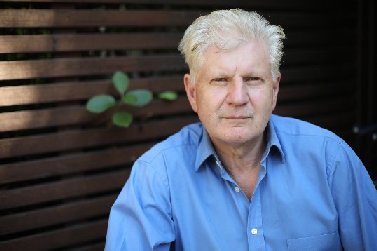The Way to Hornsey Rise: an Autobiographical Novel by Jeremy Worman
Magazine

I wrote this book to explore why a privately educated middle-class boy rejected his semi-rural Surrey background to live in the 1970s squats of Hornsey Rise, north London, then reputed to be the largest squatting community in Europe.
I had touched on these themes in two short story collections, Fragmented (2011) and Swimming with Diana Dors (2014), but not investigated enough my often traumatic childhood and adolescence. I was also interested in the relationship between my life, the search for a hippy vision, and the historical context of the times. I was convinced there was an exciting general interest story here: this self-belief is fundamental for anyone setting out on the long haul of writing a full-length narrative. Another crucial point was to limit the timescale of my story (1962 to 1976) so that I was not overwhelmed with too much material.
One significant challenge was in clarifying the relationship between the ‘autobiographical' and ‘fictional' aspects of my work. One of my mother's lovers, George Neville Prideaux, an ex-Indian Army officer, committed suicide in 1964. ‘Uncle Neville' had lived for a short period in the basement flat of our large, ugly house in Egham. By chance I discovered on the internet an auction house that had sold his OBE in 1996. All the chronological details of his life were listed as part of the sales pitch. This information released buried feelings in me about this father-figure and my relationship with a charismatic, unstable, alcoholic mother. The memoir details of the book demanded careful research, of dates, schools, events, people etc. - these facts provided a verifiable framework to my story.
What of the fictional elements? During my squatting experience there were some events I could not record in order to protect people. Some of the incidents I experienced were so peculiar, and unlikely, that a reader would have doubted their veracity. I therefore chose a clear narrative arc of a few themes which were dramatized, and the context rearranged, to illuminate my story in its full emotional truthfulness. As a teenager, it was necessary for me to partly fictionalize the identity of a girlfriend with whom I had an intense sexual and emotional relationship as she may not wish to be recognisable.
My mother, father and Uncle Neville were dead. Had I lied about them? No. I felt no moral disquiet about what I had written. This was my story, my truth and I had to tell it this way.
Finally, it is useful to have a writing mentor, or writers' group, for support and advice. Mine was the excellent Blake Morrison, supervisor for my PhD in creative writing at Goldsmiths.
Jeremy is a writer and critic who taught English Literature to American BA students for twenty-five years at Birkbeck, University of London. He has lived as a hippy in Wales and a squatter in London, where he was part of a group that set up one of the first short-term housing co-ops in Hackney.
https://hollandparkpress.co.uk/books/the-way-to-hornsey-rise/
New review in Islington Tribune
